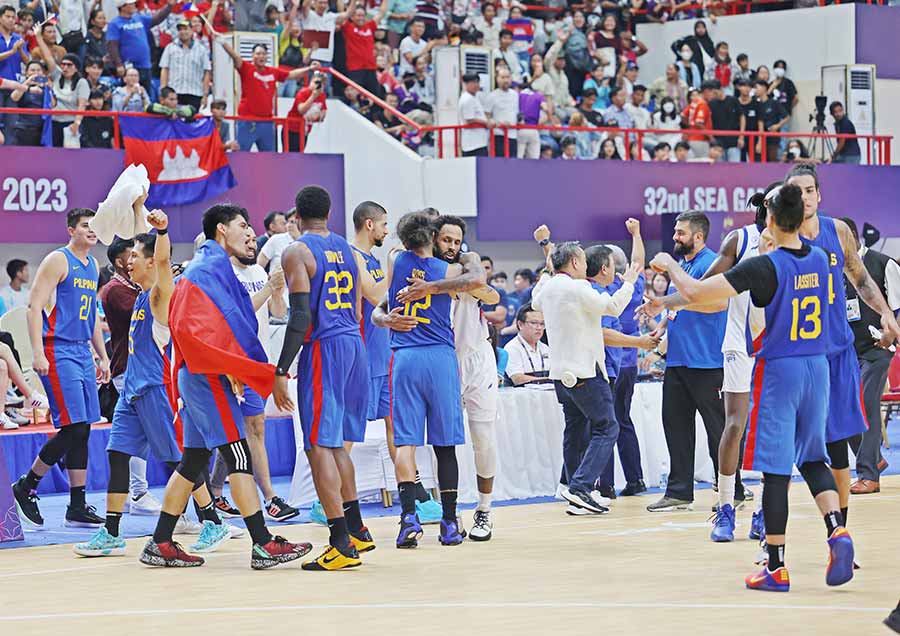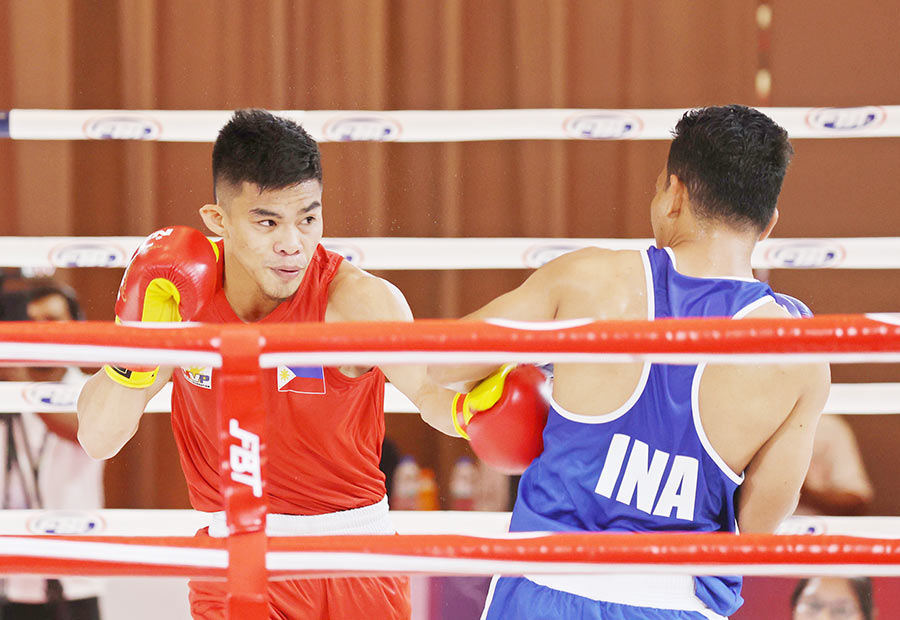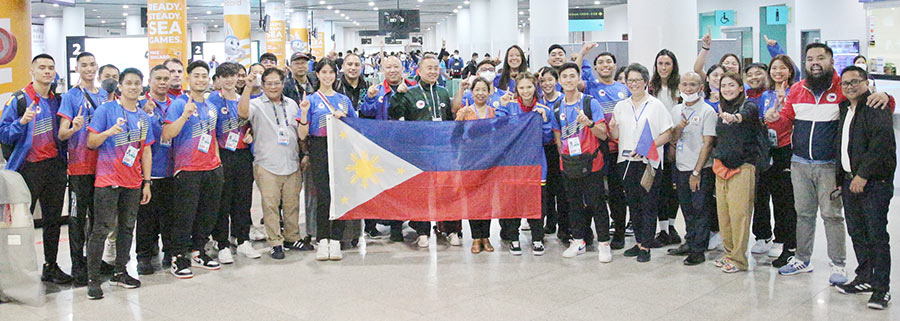In 2006, Henry Sy Sr opened SM Mall of Asia, the country’s largest mall back then and anchored the development of a 170-acre reclaimed property now known as the Mall of Asia Complex.
Today, there is practically an SM mall in every major city in the country, 82 in total, plus 7 seven more in China.
This is the grand legacy left by a simple man who rose from rag to riches, to hordes of people of all shapes, ages and tastes who troop and will troop for generations to these landmarks, both the massive kind and the modestly outfitted, across the country.
He changed the way the Filipino shops, dines and entertains with his family and friends.
 Even government today has presence in those malls, to be closer to those they serve. An SM mall is a mecca for the weary, for the happy, for the ones who just watch other people live their lives away from all the care in the world. And it’s the vision of one man who truly understood what the regular Filipino wants.
Even government today has presence in those malls, to be closer to those they serve. An SM mall is a mecca for the weary, for the happy, for the ones who just watch other people live their lives away from all the care in the world. And it’s the vision of one man who truly understood what the regular Filipino wants.
Father of Philippine retail industry. Pioneer in mall development. Epitome of the rise from rags to riches. The quintessential entrepreneur. That’s Tatang.
From helping his father run two sari-sari stores at the age of 12,.–fondly called Tatang by friends and associates–ventured into shoe business and turned it into the largest conglomerate in the country involved in retail, banking, property, tourism and equity investments in a number of other businesses totaling P980 billion.
Sy topped the Forbes Philippines Richest List for 11 years in a row, through 2018, starting at $5 billion in 2010 and was worth an estimated $19 billion when he died on January of 2019.
But unlike most of the billionaires in the country today, Sy was not born with a silver spoon. He had a dream and did everything to make it come true.
According to SM Investments, Sy’s holding company, he landed in Manila in 1936 from Xiamen, China at the age of 12 to join his father who, at that time, was running two sari-sari stores — the family’s main source of income. After the war ended in 1945, he ventured into selling American shoes imported by enterprising GIs.
He later saw the opportunities of opening a shoe store, and not long after, he was managing three shoe stores in partnership with friends.
He opened ShoeMart in Carriedo in 1958. He went on to open another store also in downtown Manila. ShoeMart Makati opened its doors to the public in 1963 and ShoeMart Cubao followed in 1967.
In 1972, two months after Martial Law was declared, ShoeMart in Carriedo was transformed into the first of Sy’s department stores. Three years later, in 1975, Sy rebranded ShoeMart and named it SM.
The natural progression of store to mall happened when Sy opened his first mall, SM City North EDSA, in November of 1985. It has 125,000 square meters of retail space.
This started the “mall phenomenon” and Sy opened SM City Sta. Mesa in 1990, SM Megamall in 1991, and SM City Cebu in 1993.
He also opened his first mall in Xiamen, China in 2001.
For over six decades, SM has demonstrated its leading presence in retail, banking, and property development, innovating to provide best-value in products and services across various customers.
In 1994, the mall business he started in the 1980s would go public under SM Prime Holdings Inc., incorporated for the purpose of holding Sy’s retailing business.
This would then be followed by the listing of SM Investments Corp. (SMIC) in 2005, which holds interest not just in SM Prime but in other SM Group businesses that include lender BDO Unibank Inc. and China Banking Corp.
SMIC is a leading Philippine company that is invested in market leading businesses in retail, banking and property. It also invests in ventures that can capture the high growth opportunities in the emerging Philippine economy.
SMIC’s retail operations under SM Retail Inc. are the country’s largest and most diversified with its food (SM Markets, WalterMart, Alfamart), non-food (The SM Store) and specialty retail stores which are leading players that provide consumers with an aspirational lifestyle, reliable service, quality products and consistent convenience.
SMIC’s property arm, SM Prime, has become one of the largest integrated property developers in the country and in Southeast Asia with interests in malls, residences, office buildings, resorts, hotels and convention centers and tourism-related property developments.
SM Prime currently has 82 malls in and outside Metro Manila and 7 shopping malls in China, totaling 10.2 million square meters of gross floor area (GFA). In the Philippines, they have a total of 18,349 tenants and 1,827 tenants in China.
Aside from the mall, SM Prime has 83 residential projects, 18 office buildings and 17 hotels and convention centers.
As of Dec. 31, 2021, it had P979.00 billion in market capitalization, P804.40 billion in total assets and posted P82.32 billion in total revenues.
SM Prime goes beyond mall development and management through its units and subsidiaries. SM Development Corp. (SMDC) is the residential business component that sells affordable condominium units. SM Prime’s commercial business units, the Commercial Property Group (SMCPG) is engaged in the development and leasing of office buildings in Metro Manila. Its Hotels and Convention Centers (SMHCC) business unit develops and manages various hotel and convention centers across the country.
SMIC has the largest banking footprint in the Philippines through BDO Unibank, Inc. and China Banking Corp.
BDO is the Philippines’ largest bank in terms of total resources, loans and deposits and is also the market leader in most key business segments such as investment banking, asset management, wealth management, remittances, credit cards, insurance and leasing.
BDO grew its net income to P40 billion in the first nine months of 2022 from P32.4 billion in the comparative period the previous year. Total capital increased to P444.6 billion, with capital adequacy ratio (CAR) and common equity tier 1 (CET1) Ratio both comfortably above regulatory minimum at 14.4 percent and 13.3 percent, respectively.
BDO holds 18 percent of the country’s market share, with assets totaling P3.818 trillion.
China Bank, meanwhile, is the fifth largest bank in terms of assets, loans and deposits. The bank posted a consolidated net income of P11.2 billion for the first nine months of 2022, 35 percent higher compared to the same period the previous year.
China Bank maintained its balance sheet strength, with P1.3 trillion in assets.
SMIC’s investments are in integrated resorts through Belle Corp., in copper mining through Atlas Consolidated Mining and Development Corp., in community mall chain CityMall, office towers under the NEO Subsidiaries and Neo Associates, in logistics firm 2GO Group, in the country’s leading bakeshop Goldilocks, and in Philippines Urban Living Solutions Inc, the largest co-living provider in the country which manages and operates MyTown.
In 2019, SMIC entered into a joint venture with Grab Philippines as part of the company’s move toward end-to-end solutions and digital innovations in its businesses.
In 2017, Sy stepped down as chairman of SMIC and was given the honorary title of chairman emeritus as recognition for being the founder of the SM Group.
His children–Teresita, Elizabeth, Henry Jr., Hans, Herbert and Harley, now hold key positions in various Sy-owned companies and subsidiaries.
According to Forbes, their combined net worth amounted to $12.6B as of August 2022, making them the country’s richest.
Teresita, the eldest, is the vice chairperson of SMIC and adviser to the Board of SM Prime.
She also sits as chairperson of SM Retail Inc. She is also the chairperson of BDO and serves as the chairperson and/or director of various subsidiaries and affiliates of BDO such as BDO Private Bank, Inc. and BDO Foundation Inc. She also serves as adviser to the Board of One Network Bank Inc.
Elizabeth is an adviser of SM Investments, a post she has held since 2012. She is the second child and is active in the group’s tourism, leisure and hospitality operations and serves as chairperson and president of SMHCC.
Henry Jr. is the vice chairman of SMIC and chairman of SM Prime. He is also the chairman and chief executive officer (CEO) of SMDC, chairman of Synergy Grid & Development Philippines, Inc. and vice chairman of National Grid Corporation of the Philippines. He is responsible for the real estate acquisitions and development activities of the SM Group which include the identification, evaluation, and negotiation for potential sites as well as the input of design ideas.
Hans, the fourth child, stepped down as president of subsidiary SM Prime in 2016 and remains a director. Hans is currently the chairman of the board of China Bank and has been a member of the Board since 1986. He also serves as director and chairman of the executive committee of SM Prime, adviser to the board of SMIC, chairman of the board of trustees of National University, Inc., and holds other key positions in several companies within the SM Group.
Herbert was first elected to the China Bank Board in 1993. He also serves as chairman of Supervalue, Inc., Super Shopping Market Inc., Sondrik Inc., and Sanford Marketing Corp., and as director of SM Prime and National University.
Harley is the executive director of SMIC. He is the co-vice chairman and treasurer of SM Retail. He is a director of China Bank and other companies within the SM Group and Adviser to the Board of Directors of BDO Private Bank.
He changed the way the Filipino shops, dines and entertains with his family and friends. Even government today has presence in those malls, to be closer to those they serve. An SM mall is a mecca for the weary, for the happy, for the ones who just watch other people live their lives away from all the care in the world. And it’s the vision of one man who truly understood what the regular Filipino wants.










 Even government today has presence in those malls, to be closer to those they serve. An SM mall is a mecca for the weary, for the happy, for the ones who just watch other people live their lives away from all the care in the world. And it’s the vision of one man who truly understood what the regular Filipino wants.
Even government today has presence in those malls, to be closer to those they serve. An SM mall is a mecca for the weary, for the happy, for the ones who just watch other people live their lives away from all the care in the world. And it’s the vision of one man who truly understood what the regular Filipino wants.